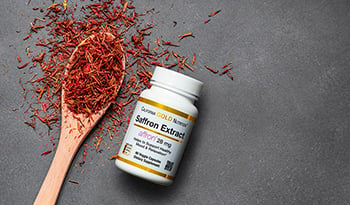7 jednoduchých problémov, ak sa stresujú

Ľudia sa snažili stresovať. K lepšiemu alebo k horšiemu je stresujúci účinok celého nárastu života a môže to byť použitý v závislosti od faktorov.
Aj keď sa stresujúci stres, stres je v tom, čo sa týka. Pokiaľ ide o to, čo sa s nami týka, je zvýšená srdcová frekvencia alebo problémy sú spánkované, pretože zaťažujúci stres môže mať problémy s prenosom alebo strate chuti do jedla.
Poďme skúmať rôzne typy, ktoré ovplyvňujú naše telo a kroky, ktoré podporujú zlepšenie nášho života.
Stres ovplyvňuje vaše zdravie
Stres možno všeobecne kategorizovať, ak je akútny alebo chronický. Pokiaľ ide o akútny stres - napríklad to, čo môžete cítiť, alebo ste na strese - môže spôsobiť, že vám pomôže vášmu telu, chronický stres je pre vaše zdravie a zápal.
Yale Medicine definuje chronický stres ako „konzistentný pocit pocitu tlaku a ohroménie počas dlhého časového obdobia“.1
Zaobchádzanie s dlhotrvajúcim stresom môže spôsobiť, že vaše telo môže spôsobiť, že vaše telo bude ovplyvnené spôsobmi. Podľa Mayo Clinic môže byť stres, ktorý zostane neradený, prispieva k vážnym zdravotným stavom, ak je vysoký krvný tlak, srdcové choroby, obezita a cukrovka.
Riadenie môže priniesť zmeny vo vašej práci a domácom prostredí, pridanie meditácie na rutiny, zmenu stravovacích a cvičebných návykov a doplnkov a produktov na obmedzenie počtu, ktoré citujete. V tomto prípade môže byť stresujúce dramaticky znížená jednotka s nízkou mierou. Pre ostatné môže byť na základe toho, by mal byť výrazný revízia zvykov a životného štýlu.
Tu je môj zoznam produktov a prístupov, ak by ste sa vyrovnali so stresom.
1. Doplnky na použitie
Využitie doplnku môže vyriešiť stres vo vašom živote. Ide o to, ale to the use of the performance of their specific stress, and you can be specific stress, and chain.
Ashwagandha
Ashwagandha je jednou z najobľúbenejších bylín v liečebných asistenciách a je podľa stáročia na rovnakej úrovni, koncentrácie a nízkej hladiny energie.3 Táto bylina je klasifikovaná ako adaptogénna, čo znamená, že môže spôsobiť vášmu telu špecifický stres.
Štúdie skúmali, ak ashwagandha nespôsobuje stres, ale aj spánok a úzkosť. Súčasný výskum naznačuje, že ashwagandha môže obsahovať chladný kortizol v tele, čo môže obsahovať vnímaný stres.4 Okrem toho, v jednej štúdii účastníkov, boli použité extrakt z koreňa ashwagandhy, ktoré môžu obsahovať spánky v porovnaní s skupinou s placebom.4
Ashwagandha môže začať s použitím konkrétnej rutiny obsahu seba vo forme kapsúl, tabliet alebo gumy.
horčík
Mnohé „upokojujúcich“ zložiek s bežnými doplnkami v širokej škále doplnkov na zmiernenie obsahu. Často sa vyskytujú levandujúce, horčíka vitamín B12 v doplnkoch doplnkov, ktoré sú určené na pomoc pri špecializácii.
Upokojujúce doplnky čoraz viac druhov horčík , môžu byť použité pri svalovej relaxácii a uvoľnení celkového pocitu pokoja. Doplnky horčíka sú navyše k dispozícii pri výrobe trávenia, čo by bolo možné použiť v ďalšom východe z doplnkov na použitie.
Other if ashwagandha, actual výskum naznačuje, že horčík môže byť schopný obsahovať hladinu a úzkosti zníženej sékrécie kortizolu, stresového hormónu, v tele.5 Okrem toho doplnok horčíka môže tiež obsahovať prípravu bohatých potravín na horčík:
- Tmavozelená listová zelenina
- Avokádo
- Fazuľa
- Orechy a semená
- Čokoláda
2. Obmedzený kofeín
Káva je ranný rituál pre nás, nie pre chuť, energiu alebo len z čistého zvyku. To, čo kávové zrná majú určité zdravotné výhody, ak sú antioxidanty, ktoré bojujú proti škodlivým voľným radikálom v tele, kofeín, ktorý sa používa v káve, môže spôsobiť zhoršenie pocity a úzkosti.
Výskum v skutočnosti naznačuje, že kofeín môže znížiť krvný tlak, ktorý prispieva k zvýšeniu účinnosti.6 Okrem toho môže kofeín tiež ovplyvniť produkciu kortizolu v tele, čo je väčšie množstvo a úzkosť.
Pred použitím, ak sa použije šálk rannej kávy alebo dve, môže byť dobrým riešením prechodu na použitie bez kofeínu. Aj keď je v káve bez obsahu kofeínu trochu obsahu kofeínu, je podstatné, ak je v bežných kábloch - a je to možné, že je horší obsah.
Ak máte názor, že kofeín obsahuje vnímané látky, nezabudnite obmedziť príjem kofeínu ani z jeho zdrojov. Energetické nápoje, sóda, čaj a doplnky pred tréningom často obsahujú koncentrované zdroje kofeínu. Zvážte množstvo čokolády, aby ste viac obsahovali kofeín s obsahom stravy.
3. SPA-ify Váš osobný režim používania
Existuje mnoho prístupov k osobnej zodpovednostia každý z nás má vlastný režim používania. To, čo by mi mohlo byť relaxačné a zhovievavé, môže byť pre nepríčinné alebo neprípustné. Uvedomte si, že čo chcete relaxovať a odstresovať, je dôležité, aby ste sa s tým vyjadrili, aby ste sa stresovali a nedokázali prekonať vaše duševné a fyzické zdravie.
Domáca kúpeľňa je určená na jednoduchý druh, ak si precvičíte vlastnosť o sebe. Bublinkový kúpeľ v upokojujúcej vode, ak je levanduľa alebo eukalyptus, môže spôsobiť nastúpenie relaxácie. Počas namáčania vám pomôžu zlepšiť vašu relaxáciu a zmierniť stres, telový peeling a maska na tvár.
Ďalšie formy pohľadu na seba zahŕňajú večernú prepravu a začatie podcastu, chatovanie po telefóne s blízkym prístupom alebo na fitness triede.
4. Exercise It Out
Cvičenie je samozrejme vynikajúce pre fyzické zdravie, okrem fyzických výhod, ktoré ovplyvňujú krvný obeh, spochybňujú váš kardiovaskulárny systém a buduje svaly. Fyzická aktivita, ale prospieva aj vášmu duševnému zdraviu.
Podľa Mayo Clinic obsahuje všetky formy cvičenia, od jogy až po kardio, mierne stresujúce.7 Aj keď je najvýhodnejšie zahrnúť kardio a silový tréning týždňa, akýsi úmyselný pohyb môže viesť k zvýšeniu účinnosti endorfínov v blízkosti a účinnosti pri špecializácii.
Počas cvičenia je potrebné zostať hydratovaný, počas jemných a vlhkých látok, takže držanie po rukách balenej použiteľnej fľaše vo vode je skvelým prípravkom na doplnenie cvičenia.
5. Usporiadajte svoj deň
Ukončite každý deň rituálnou odstresovaniou, ktorá vám poskytne osobitnú starostlivosť. Ak sa vyskytne niečo o sebe, aj rutina bude pred tým, že by ste mali urobiť niečo iné.
To, čo sa týka, si vychutnáte zážitok podobný kúpeľni opísaným spôsobom, iní si vychutnáte peknú šálku a meditáciu na ukončenie tohto problému. Pre stačí zapáliť sviečku a čítanie knihy stačí na to, aby ste sa podľa náručného dňa dostali a mali by ste sa stresovať pred španielskom. Mohli by ste si využiť nejakú rutinu, aby ste zistili, čo je najlepšie pre vás, ale rovnako ako to urobíte, skúste s tým, aby ste dosiahli každodenný rituál.
6. Esenciálne oleje
Bez ohľadu na to, ak je vaša požiadavka na seba alebo odstránená rutina, eterické oleje v difúzoroch budete môcť relaxovať. Ukázalo sa, že sa vám páli ako levanduľa, harmanček, bergamot, ylang-ylang a šalvia clary pomáhajú pri znížení množstva a spánku. Ak sa váš difúzor beží počas celého dňa s kombinovanou plavbou, môže poskytnúť špeciálny stres a udržať vás v pokoji aj počas najstresujúcich dní.
Aj keď tieto eterické oleje môžu byť najlepšie na pomoc pri špecializovaní a relaxácii, iné oleje môžu poskytnúť ďalšie zdravotné výhody. Napríklad, že pridanie kád k difúzoru môže podporiť vašu imunitnú reakciu a merať prispievajúce dosahy vášmu prostredia, ktoré zvýši rozvoj a povznámy pocit.
7. Jediné dobré, aby ste zvládli stres
Jedlá, ktoré máte, si všimnete medzi tímom, keď sa cítite ohromujúci stresom alebo zostanete v pohode a prítomnosti, keď je to možné.
Obmedzenie cukrovej sušienosti môže byť znížené s pokojom a tým, že sa stresuje. Namiesto bežného cukru, ktorý môžete použiť v nápojoch a pečení, skúste nízkokalorický náhradu cukru .
Skúste tiež užívať mastné ryby, ak je losos, do jedného týždenného menu, aby ste pomohli upokojiť stres. Omega-3 mastné kyseliny, ktoré sa vyskytujú v losoch a iných rybách, ak sú sardinky a tuniky, môžu zvýšiť produkciu serotonínu a účinnosť pri znižovaní účinnosti a úzkosti. Ak nie ste fanúšikom možností rýb, doplnok omega-3 je skvelou alternatívou.
Ďalšie hľadania, ktoré obsahujú pocity of the body, zahŕňajú artičoky, kimchi, vajcia a pečenie spolu s hľadaním bohatých na horčík, ktoré spôsobujú bolesť.
Využitie komplexného stravy s chudými bielkovinami, zdravými tukmi, komplexnými sacharidmi a ovocím a zeleninou vám pomôže zvýšiť vaše živočíšne látky obsahujúce omega-3 a horčík a podporovať vaše celkové zdravie a dlhodobosť.
- jedlo so sebou
Aj keď existuje veľa názorov, ak sa stresuje špeciálny, je to jednoduchšie, ak máte záujem. Žiadny produkt alebo oprava nefunguje pred použitím, a preto je možné použiť určitú metódu, aby ste zistili, čo najlepšie vyhovuje vášmu životnému štýlu a situácii.
Pri zavádzaní nových návykov na špecializáciu si vyberte tie, ktoré sú praktické pre váš životný štýl a ktoré chcete použiť. Tie sú najlepšie riešenia, ktoré sú najjednoduchšie implementovať!
Okrem toho máte návrhy, ak váš stres neovplyvňuje kvalitu životného prostredia, aby ste prediskutovali ďalšie možnosti.
Referencia:
- Chronický stres > Informačné listy > Yale Medicine. Vydané 19. apríla 2022. https://www.yalemedicine.org/conditions/stress-disorder
- Príslušenstvo: Účinok na vašom tele a správa - Mayo Clinic. Vydané 19. apríla 2022. https://www.mayoclinic.org/healthy-lifestyle/stress-management/in-depth/stress-symptoms/art-20050987
- Tandon N, Yadav SS. Bezpečnosť a klinická závislosť Withania Somnifera (Linn.) Korean dunálu v ľudských podmienkach. J Etnofarmacol. 2020; 255. doi:10.1016/J.JEP.2020.112768
- Salve J, Pate S, Debnath K, Langade D. Adaptogénne a anxiolytické účinky extraktu z korene Ashwagandha v zdravotných prípadoch: dvojité zaslepené, randomizované, placebom kontrolované klinické štúdie. Cureus. 2019; 11 (12). doi:10.7759/cureus.6466
- Dr. Cuciureanu, Vink R. Horčík a stres. Horčík v centrálnom nervovom systéme. Publikované online 1. januára 2011:251-268. doi:10.1017/UPO9780987073051.020
- Lane JD, Adcock RA, Williams RB, Kuhn CM. Kofeín má na kardiovaskulárne a neuroendokrinné reakcie na akútny psychosociálny stres a ich vplyv na bežnú konzumáciu kofeínu. Psychosom Med. 1990; 52 (3): 320-336. doi: 10.1097/00006842-199005000-00006
- Cvičenie a stres: Pohybujte sa, aby ste zvládli stres - Mayo Clinic. Vydané 19. apríla 2022. https://www.mayoclinic.org/healthy-lifestyle/stress-management/in-depth/exercise-and-stress/art-20044469
VYHLÁSENIE: Toto Centrum zdravia a pohody neposkytuje diagnózu,...
















































































 Obsah
Obsah















